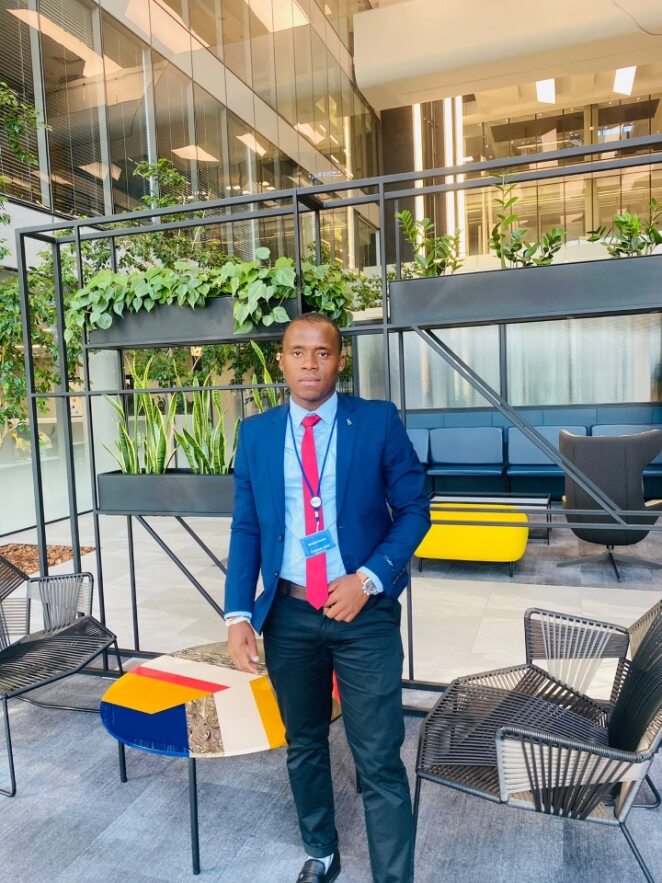Passionate about the economy of ports
Meet Mlungisi Gumede
Gumede says that a professional career in ports and coastal engineering is less known in comparison to mainstream careers. However, this area of specialisation has caught his attention because, “Approximately 90% of international trade takes place via seaports, mostly because it is the cheapest transportation mode.


As part of his Master’s, Mlungisi Gumede has set out to determine the effects of extreme weather conditions, specifically wind, on the Port of Cape Town.
Hailing from KwaZulu-Natal, Gumede is a CSIR researcher who is currently pursuing a Master of Commerce Management through the University of KwaZulu-Natal. His Master’s degree is funded by the National Research Foundation (NRF) and his research project, which is overseen at the CSIR, focuses on one of the country’s busiest ports.
Due to the magnitude of the port and the variety of stakeholders utilising the port, his study aims to investigate and quantify the loss incurred by only one of these stakeholders, namely the fruit export sector. He aims to paint a picture and give an indication of the estimated overall economic losses. Gumede will then zoom in on and determine and quantify the costs or losses brought by extreme weather conditions along the value chain of fruit export, specifically apples, from producers – and via the Port of Cape Town – to global markets. Gumede has a Bachelor of Social Sciences degree and a Bachelor of Commerce (Honours) in management.
He derives joy from the work he is involved in, such as the exposure to work in the maritime environment. “It is something new to my academic journey. As I’m still learning, the project I am currently doing is helping me to develop more research skills. There is nothing more exciting than being part of a bigger project and adding value to the body of knowledge,” he says.
Gumede says that a professional career in ports and coastal engineering is less known in comparison to mainstream careers. However, this area of specialisation has caught his attention because, “Approximately 90% of international trade takes place via seaports, mostly because it is the cheapest transportation mode. Therefore, ports have a significant impact on the global and local economy and gross domestic product. The gap in research in this area has attracted me to this field of work. Literature on it has not received substantial attention from a South African perspective. The economic loss has not been quantified,” he says.
Gumede is charting his own unique path in coastal engineering and port infrastructure, and it is a path that is driven by his interest in economics. “I am hoping that my skills may be a good match for what is needed in the coastal careers,” he says.
Challenges come with the territory, and for Gumede, securing approval to engage with stakeholders from Transnet National Ports Authority (TNPA) and the Port of Cape Town, was a long process. Gumede is currently collecting data and shares that, “Most stakeholders believe that early warning and effective communication from the TNPA about weather conditions can help them with early preparations.”
Gumede says that ports are the engines of economic development. The Port of Durban or Durban Harbour, is Gumede’s favourite port in the country, “Because it is the biggest port in South Africa, handling approximately 60% of South Africa’s container traffic.”
Part of Gumede’s career aspirations is to receive an internship at the CSIR after completing his studies. “The opportunity to kickstart my career at the CSIR will train me to be a good researcher in the future, after which I may want to join the academic world,” he shares.

